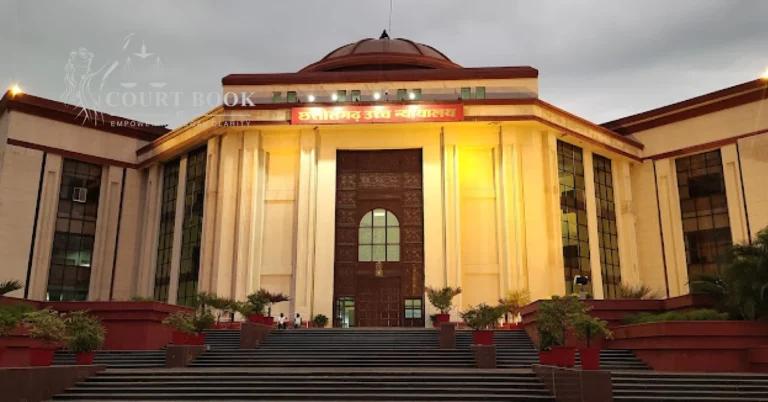The Chhattisgarh High Court has ruled that a dying declaration alone is not enough for conviction if there is no clear proof that the victim was mentally fit when giving the statement. The court overturned the murder conviction of Arjun Singh Rajput, stating that without medical certification, such statements cannot be considered reliable.
The decision was delivered by Chief Justice Ramesh Sinha and Justice Ravindra Kumar Agrawal in Criminal Appeal No. 114 of 2021. The ruling emphasized that if a dying declaration is the only evidence, courts must be cautious and ensure the victim was in a stable mental condition while making the statement.
Case Background
The case involved the death of Mona Singh, who suffered severe burns in a house fire on May 3, 2018, in Surajpur district, Chhattisgarh. According to the prosecution, Arjun Singh Rajput locked Mona inside her house, poured kerosene, and set it on fire. The alleged motive was to kill her and take possession of her property.
Read Also:- Supreme Court Acquits Murder Accused Extrajudicial Confession Lacked Credibility
Mona Singh passed away on May 11, 2018. A day after the incident, Naib Tahsildar Kishore Kumar Verma (PW-13) recorded her dying declaration.
The trial court relied heavily on this statement and convicted Rajput under multiple sections of the Indian Penal Code (IPC), including Section 302 for murder, Section 307 for attempted murder, Section 436 for mischief by fire, Section 449 for house trespass, and Section 3(2)(v) of the SC/ST Act. The trial court sentenced him to life imprisonment along with additional jail terms and fines for other charges.
Rajput challenged the verdict in the Chhattisgarh High Court, arguing that the conviction was unjustified.
Legal Issue
The primary legal question before the High Court was whether a person could be convicted solely on a dying declaration if there was no medical proof that the victim was mentally fit while giving the statement.
Read Also:- Supreme Court Woman Entitled to Maintenance from Second Husband Despite Legally Undissolved First Marriage
The defense, represented by Advocate Pawan Shrivastava, argued that the prosecution failed to prove its case beyond a reasonable doubt. He stated that there was no direct evidence against the accused and that the case relied entirely on an unverified dying declaration. Furthermore, he pointed out that no medical officer certified the victim’s mental fitness. The defense also noted inconsistencies in witness statements from Shankar Kumar Ravi (PW-1) and Lado alias Samriddhi (PW-3), which further weakened the case.
On the other hand, the prosecution, represented by State Panel Lawyer Shailendra Sharma, defended the trial court’s verdict, stating that the dying declaration was voluntary, truthful, and reliable.
The High Court carefully examined legal precedents regarding dying declarations. The judges cited several Supreme Court rulings that establish conditions under which such statements can be considered valid evidence.
In the case of Sharad Birdhichand Sarda v. State of Maharashtra (1984), the Supreme Court ruled that a dying declaration could be the sole basis for conviction only if it is voluntary, true, and made in a fit mental state. Similarly, in Paparambaka Rosamma v. State of A.P. (1999), the Supreme Court held that a dying declaration without medical certification confirming the victim’s mental fitness should not be relied upon.
The High Court also referred to the case of Jayamma v. State of Karnataka (2021), which reinforced that a dying declaration recorded without proof of mental fitness is unreliable. Another crucial reference was Irfan @ Naka v. State of Uttar Pradesh, where the Supreme Court ruled that a dying declaration should ideally be supported by other evidence to ensure fairness in conviction.
Read Also:- Son-In-Law Ordered to Vacate Senior Citizen's Property: Madhya Pradesh High Court Ruling
Applying these legal principles to the present case, the High Court found that there was no medical certification proving that Mona Singh was mentally fit to give a statement. Additionally, witness testimonies contained inconsistencies. Shankar Kumar Ravi (PW-1) claimed he saw the accused fleeing the scene, but no independent witness confirmed this. Lado alias Samriddhi (PW-3) initially stated that she saw the accused but later admitted that she could not see anything due to the smoke.
Another major issue was the lack of forensic evidence. The prosecution failed to provide scientific proof that kerosene or petrol was used at the crime scene. There was also no forensic confirmation of fuel traces on the victim’s clothes.















